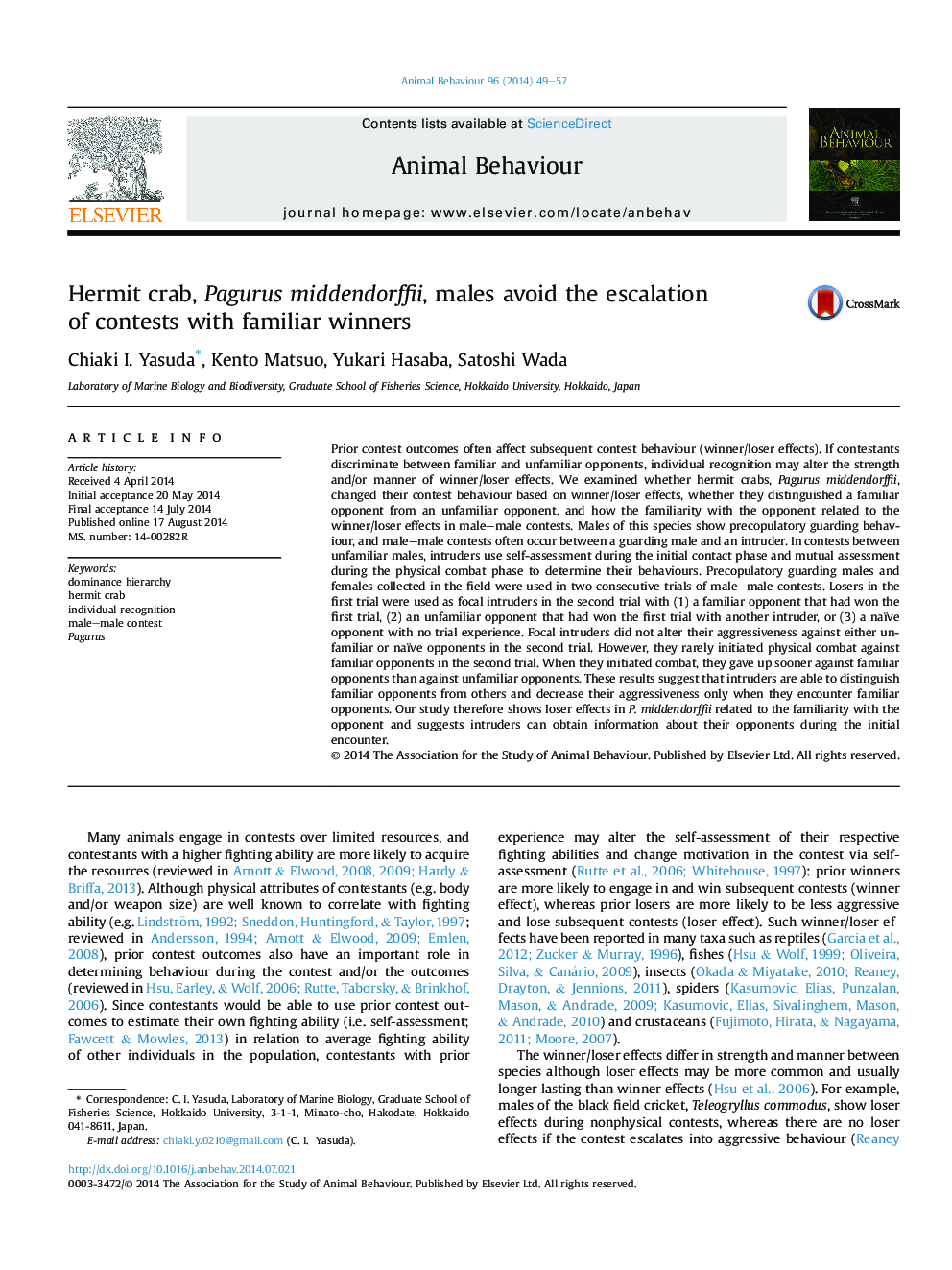| کد مقاله | کد نشریه | سال انتشار | مقاله انگلیسی | نسخه تمام متن |
|---|---|---|---|---|
| 2416353 | 1552232 | 2014 | 9 صفحه PDF | دانلود رایگان |

• An experiment with two trials of male–male contest was conducted in hermit crabs.
• Even after losing, intruders actively fought against unfamiliar opponents.
• However, they rarely showed aggressive behaviour against familiar winners.
• Intruders can thus recognize familiar males and behave as losers with them.
Prior contest outcomes often affect subsequent contest behaviour (winner/loser effects). If contestants discriminate between familiar and unfamiliar opponents, individual recognition may alter the strength and/or manner of winner/loser effects. We examined whether hermit crabs, Pagurus middendorffii, changed their contest behaviour based on winner/loser effects, whether they distinguished a familiar opponent from an unfamiliar opponent, and how the familiarity with the opponent related to the winner/loser effects in male–male contests. Males of this species show precopulatory guarding behaviour, and male–male contests often occur between a guarding male and an intruder. In contests between unfamiliar males, intruders use self-assessment during the initial contact phase and mutual assessment during the physical combat phase to determine their behaviours. Precopulatory guarding males and females collected in the field were used in two consecutive trials of male–male contests. Losers in the first trial were used as focal intruders in the second trial with (1) a familiar opponent that had won the first trial, (2) an unfamiliar opponent that had won the first trial with another intruder, or (3) a naïve opponent with no trial experience. Focal intruders did not alter their aggressiveness against either unfamiliar or naïve opponents in the second trial. However, they rarely initiated physical combat against familiar opponents in the second trial. When they initiated combat, they gave up sooner against familiar opponents than against unfamiliar opponents. These results suggest that intruders are able to distinguish familiar opponents from others and decrease their aggressiveness only when they encounter familiar opponents. Our study therefore shows loser effects in P. middendorffii related to the familiarity with the opponent and suggests intruders can obtain information about their opponents during the initial encounter.
Journal: Animal Behaviour - Volume 96, October 2014, Pages 49–57